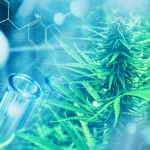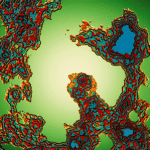One broad effect of CBD and THC is the stimulation of neurogenesis — the production and integration of new neurons in the brain.
This effect has been proposed as the basis underlying many of cannabis’ medical uses. Researchers in Barcelona, Spain, recently studied how CBD would affect addiction and learning in mice when neurogenesis was artificially prevented. They show that CBD reduces these mice’s desire to self-administer cocaine, but only when neurogenesis is allowed. Similarly, CBD’s beneficial effects on memory appeared to require neurogenesis. The anxyolytic effects of CBD, however, occured even when CBD was prevented from stimulating the creation of new neurons. The mechanism by which CBD promotes the growth of new neurons is still unclear. It’s important to mention that the researchers use temozolomide — a chemotherapy for glioblastoma — in order to prevent neurogenesis. It’s possible that this toxin prevents CBD’s effects on addiction and memory through a different mechanism, though the authors try to control for the other toxicities of temozolomide.
Adrian Devitt-Lee is a research scientist and longtime Project CBD contributor. © Copyright, Project CBD. May not be reprinted without permission.







